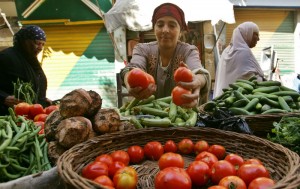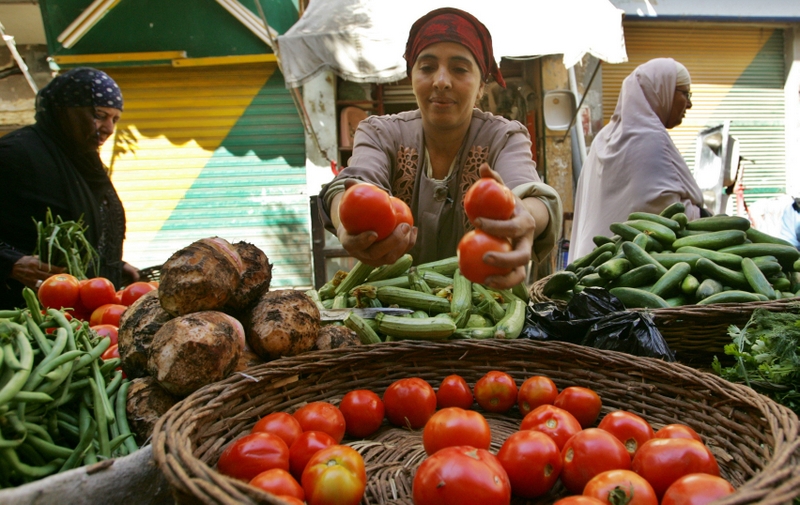
(AFP Photo)
The government is unlikely to succeed in controlling anticipated price jumps in markets, goods, and services vulnerable to such abnormalities in the wake of petroleum subsidy cuts in the new budget, unless it takes measure to protect the poor, said Fakhry Al-Faky, former Assistant to the Executive Director the International Monetary Fund.
The government cut petroleum subsidies to EGP 100bn for the 2014/2015 fiscal year (FY), compared to EGP 134bn for FY 2013/2014.
The government, however, has not revealed the timeframe for increasing petroleum derivative prices like diesel, gasoline, fuel oil, and gas, in a move to reduce the budget deficit to EGP 240bn.
According to Al-Faky, the government should not shy away from “inevitable” petroleum subsidy reforms, but they must take rapid measures to control market prices. This may take place through supporting and developing government consumer cooperatives and making all services and goods available to citizens at competitive prices to protect them from inflation.
But Al-Faky expects prices to respond speedily to the removal of energy subsidies. This will be exacerbated, he said, by government slowness in protecting the poor from projected increases by adjusting market prices. This may take place either via government consumer complexes or by taking measures to increase production rates, threatening an increase hunger among the poor and middle classes, he said.
Energy subsidies require approximately EGP 134bn of total public spending at the expense of education, health, and government investments, Al-Faky noted, increasing the government’s opportunities to develop the country and increases the budget deficit that now amounts to EGP 244bn.
“The government will not be able to control potential price jumps for all goods and services on the market against a backdrop of energy subsidy cuts in the FY 2014/2015 budget,” said Hania Al-Sholkamy, Socio-Economics Professor at the American University in Cairo (AUC).
She said: “The government may succeed in adjusting prices by increasing production and facilitating measures for producers, supporting farmers, and making all goods and services available on the market. Storage and transportation systems must also be reformed so as not to increase prices.”
Al-Sholkamy added: “It is possible for the government to distribute coupons to citizens in order for them to meet their most basic needs at discounted prices.”
According to Al-Sholkamy: “All basic goods and services are susceptible to price jumps, including fruits, vegetables, rice, oil, and sugar, when energy subsidies are cut, and the government has to race against the clock to improve production in Egypt, increase supply, regulate markets, and ensure goods are available. If not, the burden on the poor will increase.”
“Units to collect dairy in the villages are implementing an ingenious solution that must be support by the government to allow all dairy producers to sell at competitive prices on the market,” Al-Sholkamy added.
Regarding President Abdel Fattah Al-Sisi’s plan to provide the market with citizen’s needs for oil and sugar produced by the army, she said this plan is “illogical in economic terms and impossible to implement,” even if it were only applied for a month or two at the most.




